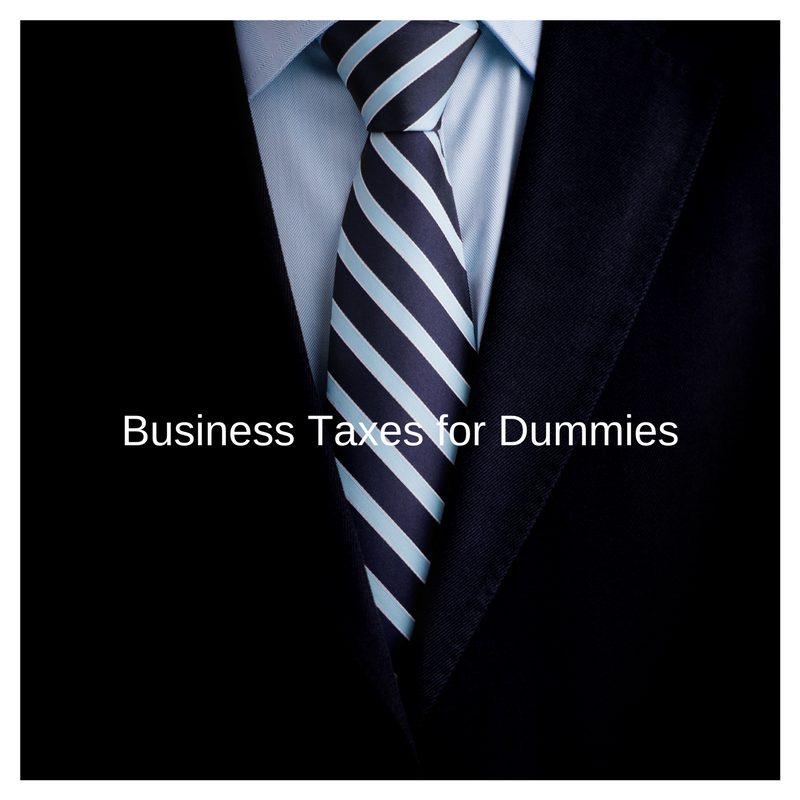What are Small Business Taxes Anyway?
There are five general types of business taxes: income taxes, estimated taxes, self-employment taxes, excise taxes, and employment taxes.
Income Taxes
All businesses except partnerships must file income tax returns yearly. A partnership files what is called an “information return”. A partnership is considered a “pass-through” business where the partners instead pay the income tax on their personal tax returns. The form used to file business income tax will vary according to the structure of the business. Some businesses are referred to as Limited Liability Company (LLCs). This type of organization is only recognized on the state level. The IRS considers an LLC as either a partnership, a corporation or as a “disregarded entity” in which case, the owner’s personal income (except for employment tax and excise tax).
Forms, Forms, Forms
Sole Proprietorships that have not elected an LLC to be treated as a corporation must complete a 1040 (Individual Income Tax Return). They must also submit Schedule C (Form 1040) Proft or Loss from a Business, or a Scheule C-EZ (Form 1040), Net Profit from a Business.
Partnerships must file an annual information return to report the income, deductions, gains, losses, etc, from its operations using form 1065, U.S. Return of Partnership Income.
A corporation (not filing as an S corporation) is required to file form 1120, U.S. Corporation Income Tax Return. An S corporation (S Corp) is considered a “pass-through” and files either an 1120S or an 1120S Schedule K-1.
Estimated Taxes
The best practice is to pay as you go with estimated tax payments as frequently as necessary. You must pay taxes on the income including self-employment tax by making estimated payments throughout the year.
Self-Employment Tax
Self-employment tax is Social Security and Medicare tax primarily for individuals who work for themselves. If you were an employee a portion of Social Security and Medicare tax would be deducted from your paychecks and your employer would pay the remaining portion. As your own boss, you pay both portions https://fasttaxhelp.org/irs-payment-plans-for-the-self-employed/. You are required to pay self-employment tax if your net earnings were greater than $400 or if you work for a church or qualified church-controlled organization.
There are special rules and exceptions for aliens, fishing crews, members, notaries, state or local government employees, foreign government or international organization employees.
Employment Taxes
When you have employees as the employer you have tax obligations that must be paid and forms that you must file. Employment taxes include Social Security, Medicare, Federal Income Withholding and Federal unemployment tax.
Excise Tax
Excise taxes include diverse and expansive categories of taxes including environmental taxes, communication taxes, transportation taxes, fuel taxes, manufacturing taxes on various commodities and taxes on the first retail sale of heavy trucks, trailers, and tractors. There is also a federal excise tax on vehicles having a gross weight of 55,000 pounds or greater. Excise taxes are filed on various forms, 720, 730 (businesses involved in gambling or lottery), 11-C Occupational Tax and Registration Return for Wagering. Excise tax has several broad excise tax programs. One of the biggest parts is motor fuel.
Need More Information?
For more information on business taxes, past due payroll taxes, or for assistance with small business development contact the author at info@fasttaxhelp.org or call 561-293-3135 or visit https://fasttaxhelp.org/fast-tax-help-form/.
Work with Enrolled Agents https://www.irs.gov/tax-professionals/enrolled-agents/enrolled-agent-information who are also CPAs that can assist with settling back business taxes. Enrolled Agents https://fasttaxhelp.org/2672-2/ with almost 30 years of experience negotiating State and Federal tax debt, Tax Professionals with an A+ rating with the Better Business Bureau. Work directly with an Enrolled Agent, not a case manager, who takes pride in their work. Our formula for success is simple. We promise only realistic options for our clients and deliver those results quickly and professionally.

